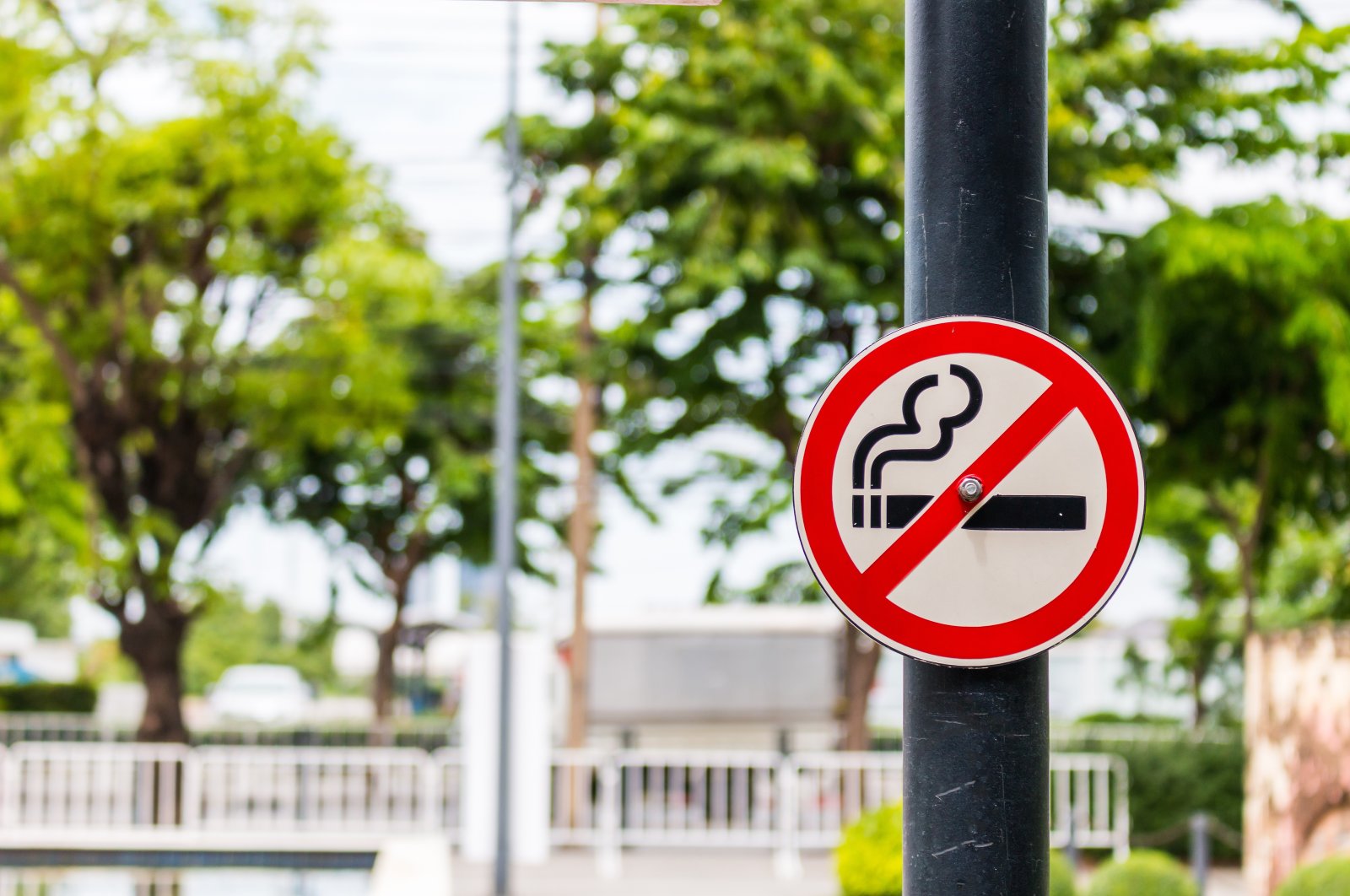
This year's campaign of World No Tobacco Day is 'Grow Food, Not Tobacco,' which aims to raise awareness about the importance of food security, nutrition and the harmful effects of tobacco
The Ministry of Health will hold awareness activities on Tuesday to collect cigarette stubs from the forest, sea or lakeside and exhibit before and after photos of the region to mark World No-Tobacco Day to highlight the damage caused by cigarettes to nature,
Every year, on May 31, the World Health Organization (WHO) and global partners celebrate World No Tobacco Day (WNTD). The annual campaign is an opportunity to raise awareness of the harmful and deadly effects of tobacco use and secondhand smoke exposure, and to discourage the use of tobacco in any form.
The focus of World No Tobacco Day 2023 is on "Grow food and not Tobacco" to increase awareness on improving food security and nutrition.
Within the scope of the May 31 events planned across Türkiye, an official letter was sent to 81 provinces with seedlings and saplings to carry out awareness activities on the harm caused by tobacco to the environment and health.
Activities will be organized under the slogans "Throw Seeds, Not Stubs," "Invest in Food, Not Poison," and "Leave Oxygen-Emitting Forests Not Tobacco Fields to Your Children."
Posters and similar information materials will be hung in all health institutions and places where citizens are concentrated, explaining the concept of smoke-free air space and the harms of cigarettes.
The use of tobacco and exposure to it adversely affect the health of every age group and the environment, said the General Directorate of Public Health, reported Anadolu Agency (AA).
Every year the tobacco industry costs the world more than 8 million human lives, 600 million trees, 200,000 hectares of land, 22 billion tonnes of water and 84 million tonnes of CO2, WHO reports.
The same thing is true of flavored disposable vapes (e-cigarettes). They are harmful for more than one reason and shouldn’t be treated any differently from non-disposable or reloadable vapes just because these can be thrown away.
E-cigarettes
Drawing attention to the harmful effects of electronic cigarettes and heated tobacco products, which are offered as an alternative to cigarettes, the head of the Turkish Anti-Smoking Association Dr. Mustafa Aydın said: "Electronic cigarettes, which are offered as an alternative to people who want to quit smoking, pose a great risk to both our own health and public health. These types of cigarettes are encouraged by the cigarette industry by claiming that they are 'less harmful,' which misleads these young minds."
E-cigarettes are known by many different names. They are sometimes called "e-cigs,” "e-hookahs,” "mods,” "vape pens,” "vapes,” "tank systems” and "electronic nicotine delivery systems (ENDS).” Most e-cigarettes contain nicotine, which is addictive and toxic to developing fetuses. Nicotine exposure can also harm adolescent and young adult brain development, which continues into the early to mid-20s. E-cigarette aerosol can contain chemicals that are harmful to the lungs. And youth e-cigarette use is associated with the use of other tobacco products, including cigarettes.
Stating that the age of smoking has decreased in recent years, Aydın said, "Adolescents are more vulnerable to nicotine dependency than adults. Chronic nicotine exposure can impact brain development. This can contribute to cognitive and attention deficit conditions and worsen mood disorders, including depression and suicidal thoughts. Popular disposable e-cigarettes often contain the maximum permitted nicotine strength of 20 mg/ml. One brand suggests their disposable e-cigarette contains a nicotine content equivalent to approximately 40–50 cigarettes. Unfortunately, children are introduced to this poison at a very young age due to peer pressure and social acceptance."
E-cigarettes not only pose substantial health risks to youth and young adults, they pose a significant environmental threat. E-cigarette waste is potentially a more serious environmental threat than cigarette butts since e-cigarettes introduce plastic, nicotine salts, heavy metals, lead, mercury and flammable lithium-ion batteries into waterways, soil and to wildlife.
Unlike cigarette butts, e-cigarette waste won’t biodegrade even under severe conditions. E-cigarettes left on the street eventually break down into microplastics and chemicals that flow into the storm drains to pollute our waterways and wildlife.
The harms of cigarettes, vapes or any other form of tobacco should be well explained to our society and especially to our youth, said Aydın.
